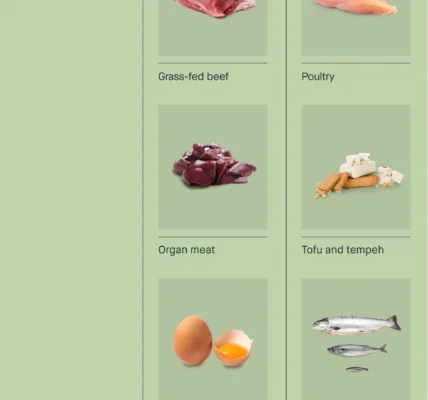How to Manage Weight During Pregnancy: Is It Safe to Lose Weight in the Third Trimester?
Many expectant mothers often wonder about managing their weight, with the common question “How to lose weight while pregnant in the third trimester?” being frequently asked. However, intentionally losing weight during this crucial stage of pregnancy, or even during most of the pregnancy, is generally not considered safe unless there are specific medical circumstances and it’s under strict supervision. Losing weight, especially through dieting, can deprive both you and your developing baby of essential calories and nutrients necessary for healthy growth in the third trimester. This article explores the risks associated with weight loss late in pregnancy and focuses on safe strategies for managing weight gain instead.

Why Weight Loss in the Third Trimester is Risky
Actively trying to lose weight in the third trimester can pose significant risks. During these final months, your baby is growing rapidly, requiring substantial energy and nutrients from your diet.
Nutrient Deficiency: Restricting calories or food groups can lead to deficiencies in important vitamins, minerals, and macronutrients like protein, fats, and carbohydrates, which are crucial for your baby’s brain development, organ maturation, and overall growth.
Impact on Baby’s Growth: Insufficient calorie intake can result in your baby being born too small (small for gestational age, or SGA).
Increased Risk of Preterm Birth: Some studies suggest that inadequate nutrition or weight loss during pregnancy may increase the risk of preterm labor and birth.
Maternal Health: Your body also requires adequate energy to support the pregnancy, prepare for labor, and recover postpartum.
While managing excessive weight gain is important, deliberately shedding pounds during this period is not the recommended approach for a healthy pregnancy outcome.

Understanding Recommended Pregnancy Weight Gain
Healthcare providers emphasize the importance of appropriate weight gain during pregnancy, tailored to your pre-pregnancy Body Mass Index (BMI). BMI is an estimate of body fat based on height and weight.
-
Overweight (BMI 25-29.9): A recommended weight gain of 15 to 25 pounds, averaging about 2 to 3 pounds per month during the second and third trimesters.
-
Obese (BMI 30 or higher): A recommended weight gain of 11 to 20 pounds.
These guidelines, provided by organizations like the Institute of Medicine (IOM), aim to support fetal growth while minimizing the risks associated with excessive weight gain.

Special Considerations for Overweight or Obese Pregnancies
More than half of pregnant women start their pregnancy overweight or obese. If you fall into this category, your doctor may discuss a weight gain target slightly below the standard recommendations. Some research suggests that gaining slightly less weight (for example, 6 to 14 pounds for obese women) could yield similar or even better outcomes than gaining the higher recommended amounts, but this must be carefully monitored by your healthcare provider. Never attempt to restrict your intake significantly without explicit medical guidance, as ensuring your baby is growing appropriately remains the top priority.
Safe Strategies for Managing Weight in the Third Trimester
Instead of focusing on weight loss, the goal during the third trimester should be managing weight gain within the recommended range through healthy habits. Pregnancy is not the time for restrictive diets like keto or Atkins, which can deprive your baby of essential carbohydrates and potentially cause harm.
Focus on these healthy practices:
Eat Balanced Meals and Snacks: Prioritize nutrient-dense foods. Include lean proteins, fruits, vegetables, whole grains, and healthy fats. Plan your meals and choose healthy snacks to avoid excessive hunger and unhealthy choices.
Stay Hydrated: Drink plenty of water throughout the day, aiming for about ten 8-ounce glasses. Proper hydration supports metabolism and can help manage appetite.
Choose Complex Carbohydrates: Opt for whole grains (like brown rice, quinoa, whole-wheat bread), beans, fruits, and vegetables over simple carbs (white bread, white rice, sugary snacks). Complex carbs provide sustained energy and fiber.
Engage in Safe Exercise: Regular, moderate exercise (approved by your doctor) like walking, swimming, or prenatal yoga can help manage weight gain, improve mood, and prepare your body for labor.
Monitor Weight with Your Provider: Attend all prenatal appointments. Your doctor or midwife will track your weight gain and ensure it aligns with a healthy progression for you and your baby.
Warning Signs Related to Weight Changes
While intentional weight loss is discouraged, unintentional weight loss, particularly in the second or third trimester, should be discussed with your provider immediately. It might sometimes be harmless (like losing water weight after temporary retention), but it could also signal underlying issues such as:
-
Severe nausea or vomiting
-
Conditions affecting appetite (heartburn, bloating, constipation)
-
Underlying health problems like depression
-
Fetal growth restriction
-
Sudden, dramatic weight loss (e.g., five pounds in one week) requires immediate medical attention.
What About Early Pregnancy Weight Loss?
Losing a few pounds during the first trimester is relatively common and usually not a cause for concern. This can happen due to:
-
Morning Sickness: Nausea and vomiting can reduce appetite and calorie intake.
Advertisement -
Fat Reserves: Women who start pregnancy overweight may have stored energy reserves.
-
Lifestyle Changes: Adopting healthier eating and exercise habits upon discovering pregnancy can lead to initial weight loss.
Unless the weight loss is excessive or accompanied by severe symptoms (like potential hyperemesis gravidarum), your baby typically still receives adequate nutrients during this early phase.
Conclusion
While the question “How to lose weight while pregnant in the third trimester?” reflects a common concern about weight management during pregnancy, actively trying to lose weight during this late stage is generally unsafe for both mother and baby. The focus should shift from weight loss to healthy weight management through a balanced diet, appropriate exercise, and regular consultation with your healthcare provider. Prioritizing adequate nutrition and steady, appropriate weight gain within recommended guidelines is essential for supporting your baby’s final stages of development and ensuring a healthy pregnancy outcome. Always discuss any concerns about your weight with your doctor or midwife.




